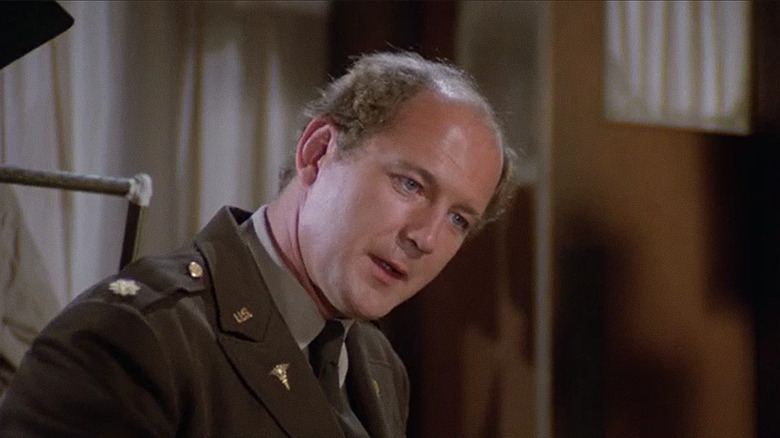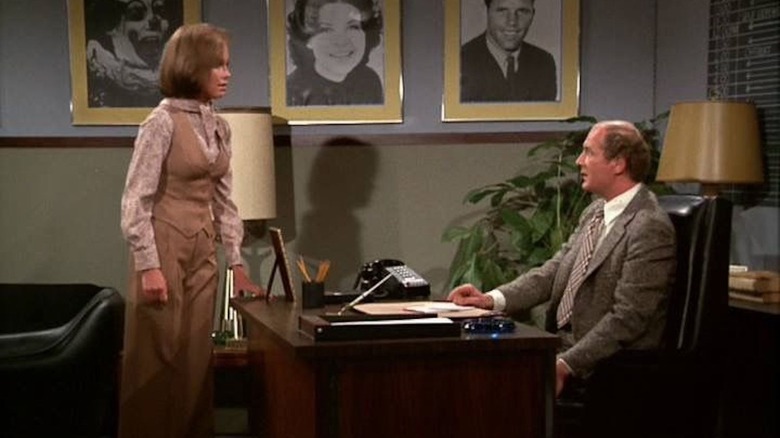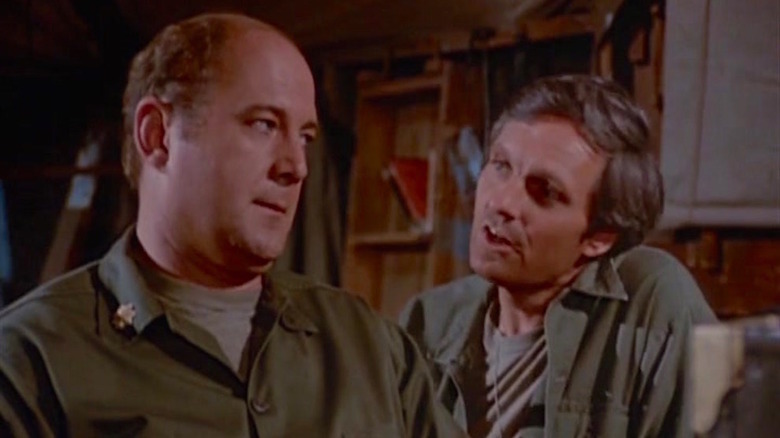How The Mary Tyler Moore Show Helped M*A*S*H Cast David Ogden Stiers
For a television series that ranked in the Nielsen ratings' top ten for nine of its 11 seasons, "M*A*S*H" experienced a surprising amount of cast turnover. McLean Stevenson (Henry Blake) and Wayne Rogers (Trapper John McIntyre) departed after the third season, and these were huge losses (the manner in which Stevenson was written out of the show angered fans and CBS executives alike). But the producers deftly assuaged viewers concerns by promoting Jamie Farr's cross-dressing Corporal Klinger and hiring Harry Morgan to play the gruff but fair Colonel Sherman T. Potter.
The next significant loss arrived at the end of the fifth season, when Larry Linville exited the series. This left the "M*A*S*H" team with the difficult task of finding an actor capable of playing a pompous walking bulls-eye on par with Linville's Frank Burns. Some of the show's biggest laughs erupted from the company's gleeful tormenting of the humorless surgeon.
The producers could've stuck with what works and found the best possible Linville substitute, but while there are loads of unemployed actors out there, that's a very specific, not-terribly-in-demand type (as Linville learned himself throughout his post-"M*A*S*H" career). They finally found their man, but wound up writing a character with different qualities than Burns, ones that were occasionally likeable.
The gift of being lovably unlovable
In 2018, The Hollywood Reporter commemorated the 35th anniversary of the "M*A*S*H" series finale by asking some of the show's major players to share some of their favorite memories. When it came to replacing Linville's Frank Burns, Burt Metcalfe, a writer who'd just been promoted to executive producer after the fifth season, remembered being struck by a bolt of inspiration while nursing a flu on a Saturday night. He was watching a season seven episode of "The Mary Tyler Moore Show," and was knocked out by the comedic skill set of the actor playing the WJM station manager.
As he told THR:
"Near the end of the show, he has this line of dialogue he says to Mary and Lou [Grant], who are on strike: 'Personally, I love you both, in fact I hope you both change your minds and come back to be part of the family again, where you're appreciated, where you have the warmth of WJM to embrace you. If not, I'll see to it that you both die in the gutter. Have a nice day.' I said someone who can be that lovably unlovable. That's the guy."
The right man for a sitcom in transition
David Ogden Stiers was absolutely the guy, and his stuffy Charles Emerson Winchester III quickly turned into a far more nuanced character than Burns. He wasn't a complete buffoon, nor was he mean. He was a very good surgeon, and he cared about the wounded soldiers who came through the 4077th's operating room. Most importantly, he could dish it out, which proved vital as the series took on a more serious tone; the final season wouldn't have worked nearly as well with a one-dimensional human punchline like Burns.
After "M*A*S*H," Stiers avoided typecasting and became one of Hollywood's most reliable character actors. He was a welcome presence in all kinds of movies, though he's probably best known to younger viewers as the voice of Cogsworth in Disney's classic 1991 adaptation of "Beauty and the Beast." He worked right up until his death in 2018, and, well, we haven't seen his likes again because, well, the industry isn't exactly flooded with David Ogden Stiers types either.


